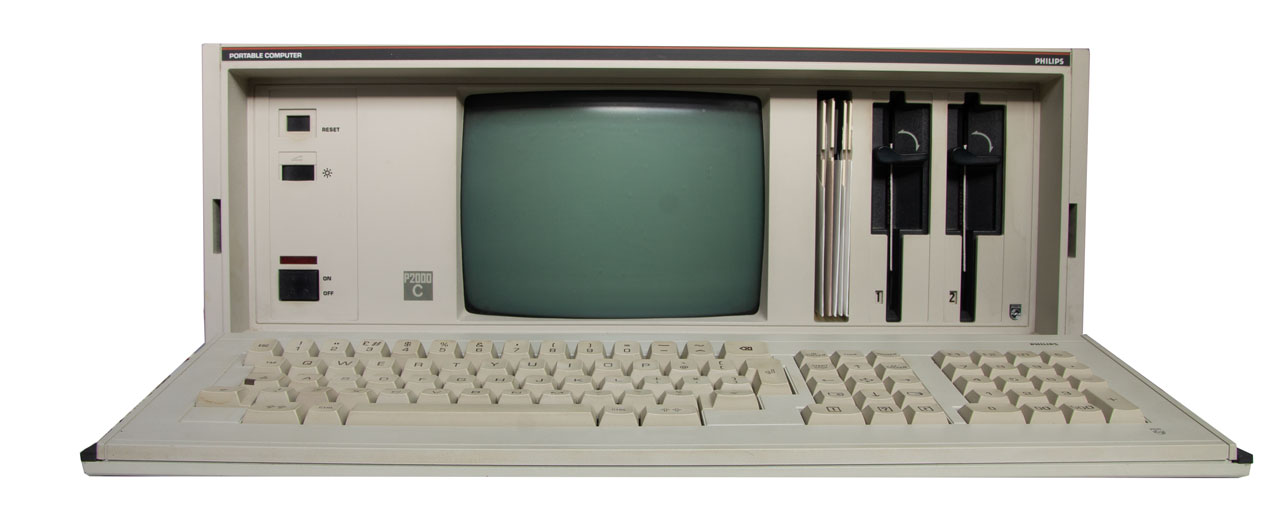Posts in P2000C
Comparing writing “Hello World” using DDT versus ASM in CP/M
- 29 September 2024
Using DDT, one can use the inline assembler to write small programs.
Besides DDT, CP/M also offers ASM to assemble a bit more
advanced programs. In this blogpost, I will use both programs to write a small
“Hello World” program and compare the workflow between the two procedures.
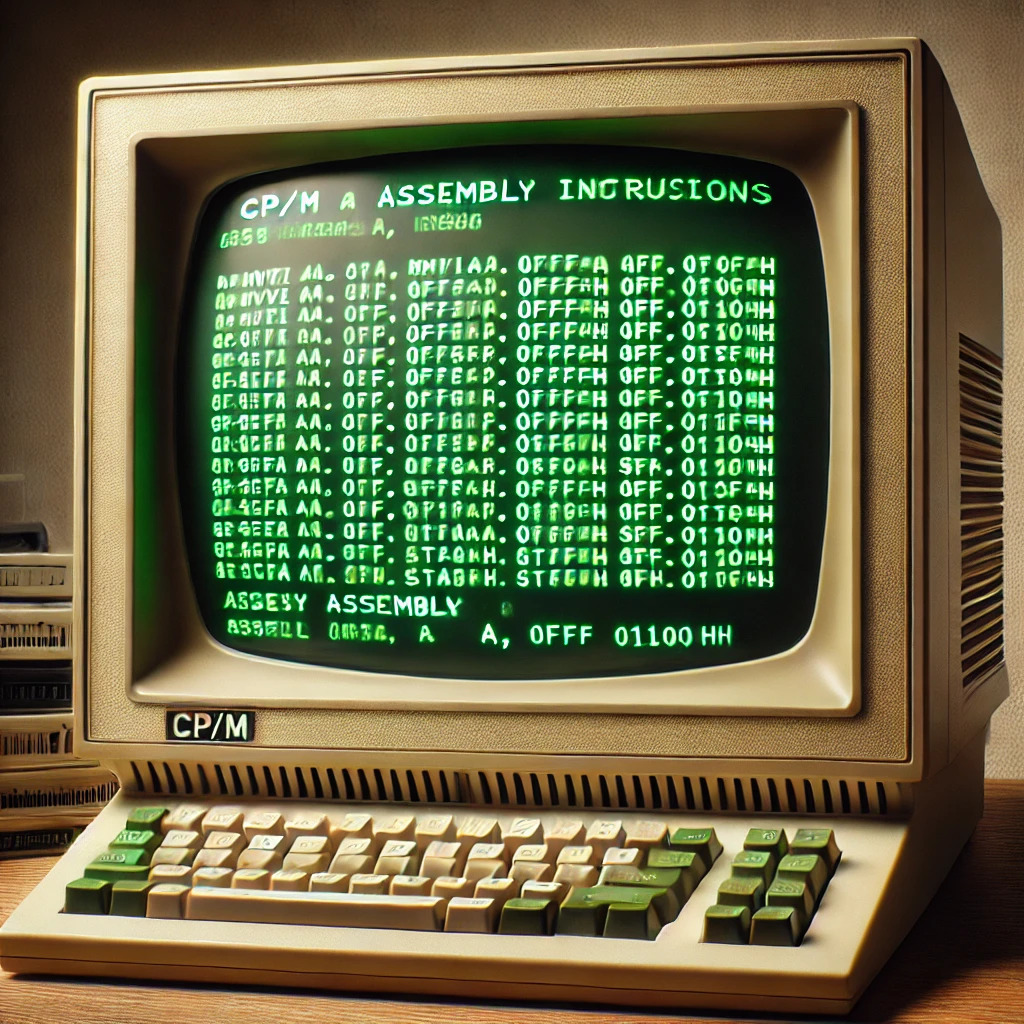
Driving serial communication in CP/M on the P2000C using Z80 assembly
- 22 September 2024
The Philips P2000C, despite allowing for a 8088-CoPower Board, was in the first place a CP/M machine. CP/M (Control Program for Microcomputers) was an early operating system developed by Gary Kildall in 1974 for Intel 8080 microcomputers. It became one of the first widely used OS for personal computers, providing essential features like file management, device input/output control, and program execution. CP/M was particularly influential because it allowed software to run on different hardware platforms, establishing an early form of software portability. It laid the groundwork for future operating systems and influenced the development of MS-DOS, which became dominant in the 1980s. CP/M’s impact is significant in the history of personal computing.
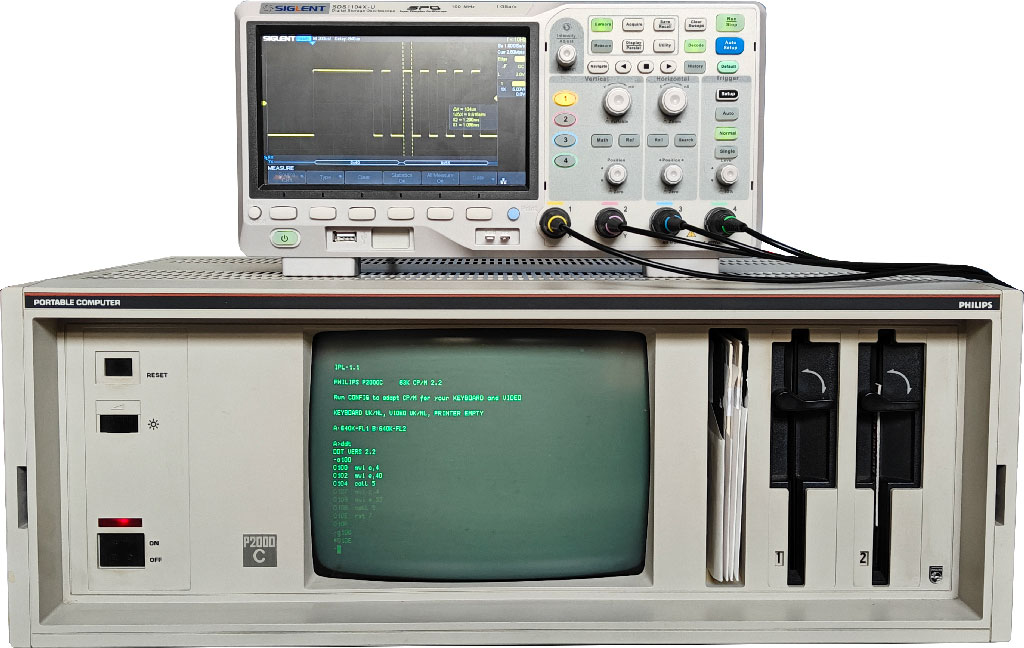
A file transfer program for the P2000C / CoPower board
- 01 September 2024
In the previous two blogposts I discussed how we can use the serial port on the P2000C to exchange data between the venerable P2000C and a modern computer. So far, we were mainly exchanging short message strings, but a more valid use case is to transfer program files from a modern computer to the P2000C such that we can run these programs on the P2000C. This would also allow for cross-compilation on a modern computer and run the result on the P2000C.
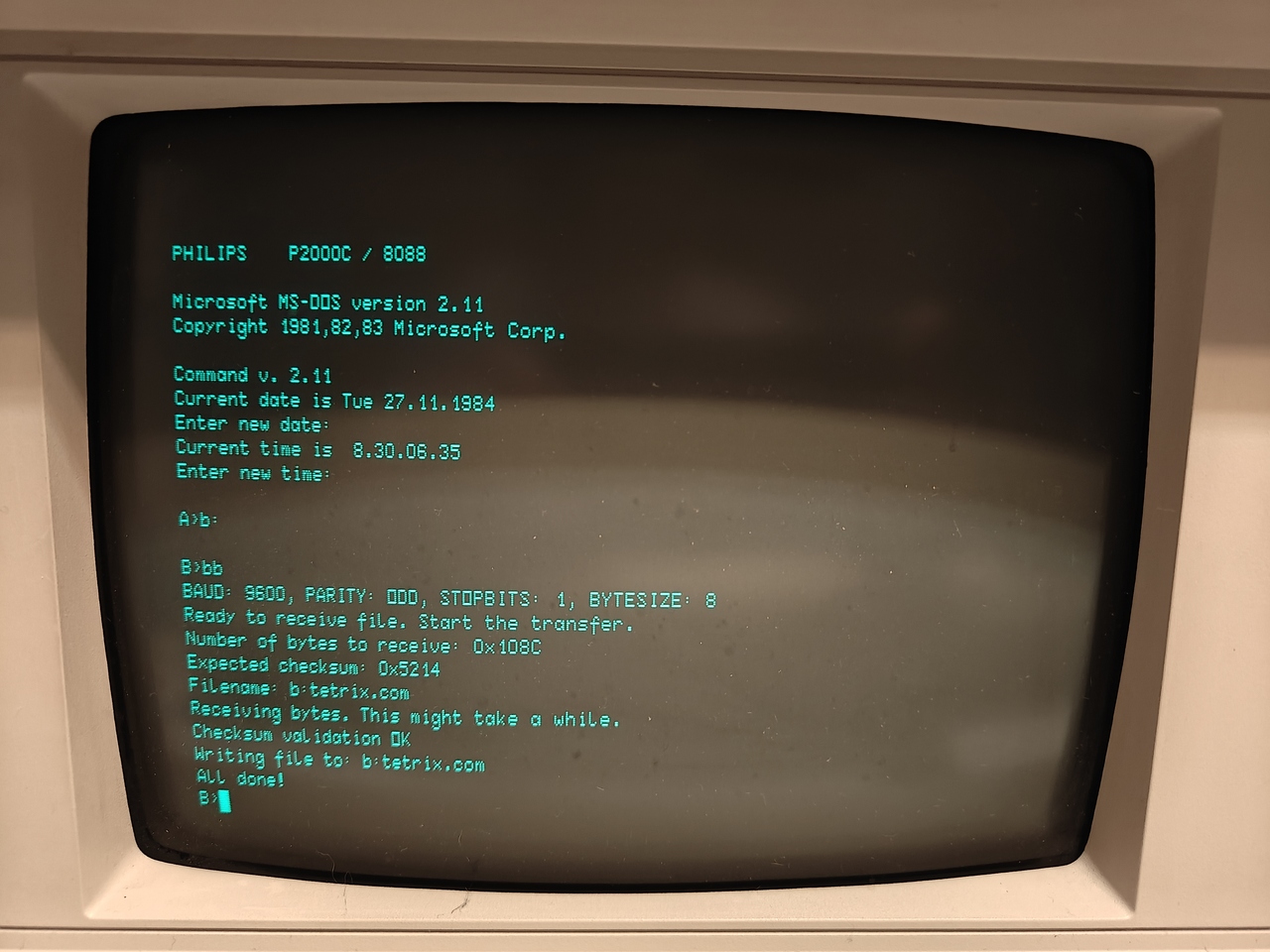
Transmitting data to the Philips P2000C
- 23 August 2024
In the previous blogpost it was shown how data can be sent from the P2000C to a modern computer. In this post, we will look into how we can reverse the process and transmit data from a modern computer to the P2000C.
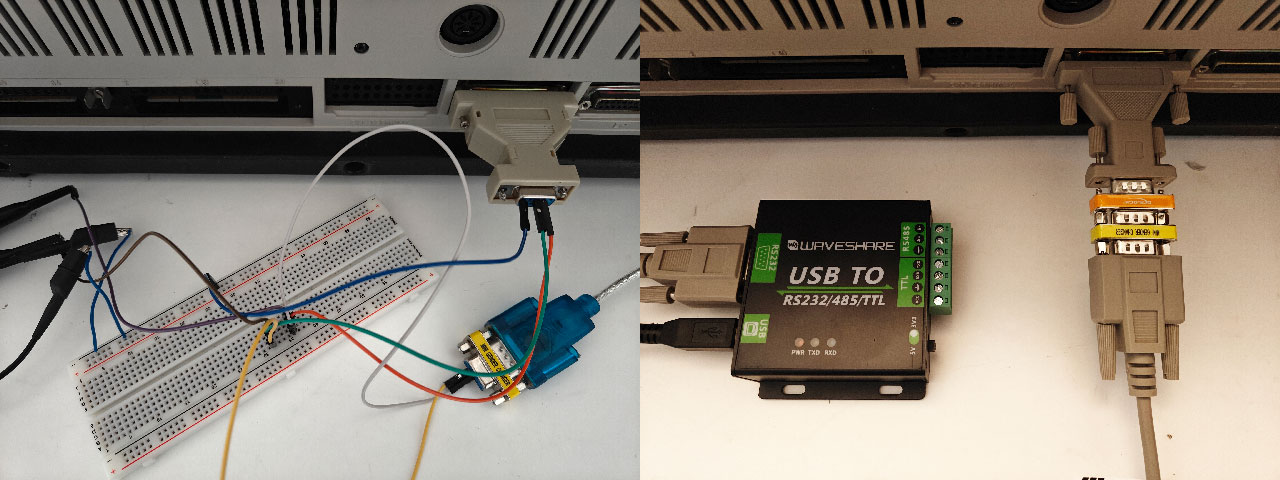
Serial communication with the Philips P2000C
- 17 August 2024
The Philips P2000C hosts a DB25 serial interface connector on its back side which can be used for serial communication according to the RS-232 protocol. This blog post will look into more detail how this protocol works and how we can drive the serial interface port using MS-DOS interrupt routines.

Writing 8088 assembly on the Philips P2000C
- 11 August 2024
Roughly two weeks ago, I visited the Helmond Computer Museum and was extremely lucky to find they had a Philips P2000C up for sale. A so-called luggable, in a way a predecessor of current laptops, designed by the Philips electronics company. The computer hosts a Zilog Z80A processor running at 4 MHz.
